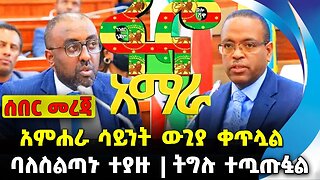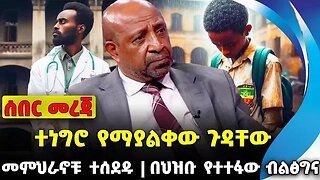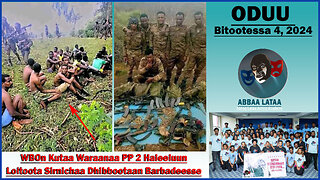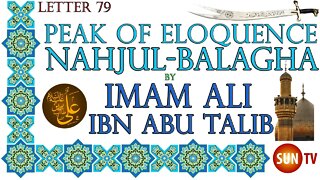Ajjeechaa Jaal Batte Urgeessaa: Itti Fufa Duula Oromoo Cabsuu
https://www.youtube.com/@Birmaduu
t.me/Birmaduu1
www.x.com/Birmaduu1
#birmaduu #oromiyaa #oromoo #gadaa #ob
The colonization of the Oromo people was driven by a combination of geopolitical factors, Ethiopian expansionist policies, and cultural dynamics. The conquest and subjugation of Oromo territories were part of Ethiopia's broader project of territorial expansion and consolidation of power in the late 19th and early 20th centuries.
Political assassination has been used as a brutal tool of subjugation and control over the Oromo people, contributing to their marginalization and perpetuating cycles of violence and instability. Efforts to address these issues must involve advocating for justice for victims of political violence, promoting accountability for perpetrators, and supporting the empowerment and self-determination of the Oromo people.
Political assassination has unfortunately played a significant role in the subjugation and marginalization of the Oromo people throughout history. Here's how:
1. Elimination of Oromo Leadership: One of the key tactics used by colonial powers and oppressive regimes to maintain control over the Oromo people has been the targeted assassination of Oromo leaders and intellectuals. By eliminating influential figures within the Oromo community, colonial and authoritarian regimes sought to weaken Oromo resistance movements, disrupt political organization, and sow fear and division among the Oromo population.
2. Suppression of Dissent: Political assassinations have been used as a tool to suppress dissent and resistance within the Oromo community. Activists, journalists, and political leaders advocating for Oromo rights and autonomy have often been targeted for assassination by state security forces or government-backed militias. These killings serve to intimidate and silence dissenting voices, making it more difficult for the Oromo people to organize and mobilize against oppressive regimes.
3. Perpetuation of Marginalization: The targeted assassination of Oromo leaders and activists has contributed to the perpetuation of marginalization and disenfranchisement within the Oromo community. By eliminating individuals who advocate for Oromo rights and empowerment, oppressive regimes can maintain their grip on power and continue to exploit Oromo resources and labor without facing significant resistance. This cycle of violence and repression reinforces the marginalization of the Oromo people and hinders their ability to achieve political, social, and economic equality.
4. Creation of Instability: Political assassinations also create instability within Oromo communities and undermine efforts to build trust and cooperation among different factions. The fear of being targeted for assassination can lead to distrust, paranoia, and internal conflict within the Oromo community, making it easier for oppressive regimes to maintain control through divide-and-rule tactics.
-
 2:04:33
2:04:33
LexwillTheServant
9 months agoIRUNMOLE Rashad Jamal BLACK KON-SCIENCE COMMUNITY: DEMON WORSHIP-ORISHA/IFA/ASE as written Deut32:17
285 -
 0:37
0:37
BuzzvideosFI
3 years agoUrhea matkustaja poistaa käärmeen täpötäydestä junasta
-
 17:50
17:50
BaroTube
7 months agoኦህዴድ ምን ተማምኖ? || shimelis abdisa || berhanu nega || jawar || abiy || adanech || oromia || shene
34 -
 11:04
11:04
BaroTube
6 months agoአምሐራ ሳይንት ውጊያ ቀጥሏል | ትግሉ ተጧጡፏል | ባለስልጣኑ ተያዙ || Abiy | berhanu jula | Amhara| Fano Nov-23-2023
10 -
 12:16
12:16
BaroTube
6 months agoተነግሮ የማያልቀው ጉዳቸው | በህዝቡ የተተፋው ብልፅግና || መምህራኖቹ ተሰደዱ || Abiy | berhanu jula | Amhara| Fano Nov-23-2023
8 -
 6:22
6:22
mube1
1 year agowalaloo kabajaa Dr. Alii Birraatiif Barreeffame
-
 49:37
49:37
Enfo Fyab
8 months agoVolè Siman Sou Kanal la ?Kisa Bagay la ye Chofè Manke Pran Bwa Kalé/Pastè Gregory Tranble Peyi an
5 -
 13:20
13:20
MIILTOO DHUGAA
2 months agoODUU MIILTOO DHUGAA(Bitootessa 4, 2024)
28 -
 51:57
51:57
Rael Academy
1 year agoMaitreya Rael: How are You ? (77-01-02)
55 -
 0:17
0:17
SUN TV
1 year agoPeak of Eloquence Nahjul Balagha By Imam Ali ibn Abu Talib - English Translation - Letter 79
3